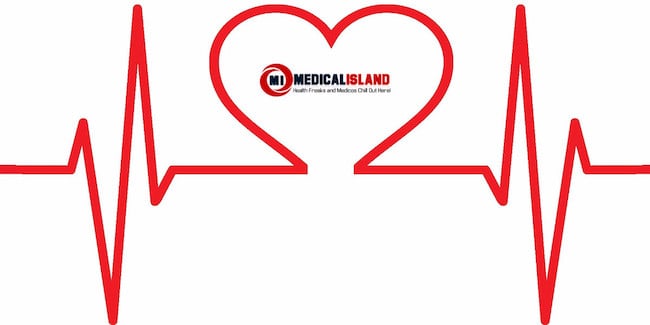The sad fact is that cardiovascular disease is the most common cause of death in the United States. In the U.S., over 60 million people suffer from one type of cardiovascular disease or another.
It’s a common mistake that people believe that there’s just one type of heart condition. Often, people believe it’s only a heart attack that might lead to a death or a long-term recovery program. That’s actually not true.
In this article, we cover a range of heart conditions from the most common ones to the slightly less common. We will explain them in broad detail to get a basic understanding of what the differences are and if there are things you can do to avoid them, or help get the right treatment should you suffer from them.

Coronary Artery Disease
Coronary artery disease is the most common heart condition that affects around 14 million Americans every year. The disease may seem like it comes on suddenly, but it’s actually one of the slowest developing. It is primarily caused by plaque buildup in the arteries that lead to the heart itself.
The arteries begin their life with smooth surfaces and are flexible like a piece of rubber or elastic. However, over time, their interior gets covered with plaque which changes them into less flexible passageways and with slimmer avenues for blood to get to and from the heart. When the blood gets too insufficient for the heart muscle’s needs, the heart lacks the oxygen it requires to function.
The plaque begins building at a tender age, however, it’s only when you reach adulthood that the buildup of plaque becomes more obvious. The walls begin to suffer because of it and can expand outwards. Excessive levels of bad cholesterol also don’t help. The problem is compounded when plaque gets sticky and links up with calcium, lipoproteins and inflamed cells which move within the blood to the arteries making matters worse. Should this occur, there is an increased risk of either a heart attack or a blood clotting problem.
Dangers
A lack of blood flow and oxygen getting to the heart is a major risk to health. Sometimes, a new artery is grown by the body to help increase blood flow, but that doesn’t always happen. The greater the stress, the more oxygen in the blood is required which is often why being stressed is a risk of a heart problem.
Sometimes, a plaque buildup can break off and cause a major blockage of the artery which leads to a heart attack. Should a blood vessel that leads to the brain suffer a blood clot, a stroke (ischemic) may occur. Also, blood vessels in the brain can burst suddenly due to hypertension which can cause another type of stroke (hemorrhagic).
To check on how your heart is functioning, it’s useful to get an echocardiogram. You can read more here about what those are and how they can isolate potential heart conditions before they become more serious.
Heart Attacks
A heart attack is what people are most familiar with. This is when insufficient blood gets to the heart and it is then starved of oxygen. Nourishment of the heart muscle is continually needed otherwise it fails to function properly.
The leading cause of heart attacks is the blocked artery problem as described in the previous section. A lack of exercise and a poor diet are often contributory factors which lead to obesity in some cases and a far higher likelihood of suffering a heart attack. Over one million Americans suffer heart attacks every year.
The indicators of a heart attack include:
- Chest pain
- Nausea
- Difficulty breathing
- Pain in the arm, back or neck
Irregular Heart Beat
An irregular heartbeat is something that you’re often born with and may not even be aware of. It is known as arrhythmia in the medical world and points to a heart that doesn’t beat either as often as it should or in a predictable rhythmic pattern.
Having an irregular heartbeat can cause issues with the heart not getting enough blood or where it is failing to pump it out to feed the rest of the body. Once it is diagnosed, there are usually some improvements that can be made to the heart’s health once the patient is aware that it is a condition that they have.
Other Diseases
There is a collection of other heart diseases that sometimes occur.
Rheumatic heart disease comes about after a bout of rheumatic fever which damages the heart muscle. Repeated bouts of rheumatic fever continue to exact damage on the heart which can impair its functionality over time.
Inflammatory heart disease is a specific problem known as myocarditis. The enlargement occurs in the outer membrane sac, the lining of the heart itself or the muscle of the heart. Within inflammatory heart disease, the affected person can also suffer from valvular heart disease, cardiomyopathy or pericardial disease; or all three.
Along with the above common heart issues, there is also sudden heart failure. This is where the heart simply stops functioning abruptly and without warning. This is usually due to old age but can also be connected to a fundamental failure of the heart to work properly.
People with heart disease often aren’t aware of it. Sometimes, people have a hole through their heart that they were born with and lived a long life completely unaware of it. Other times, it becomes obvious in young adulthood that there’s a problem, which leads to a series of checkups that eventually confirm the correct diagnosis.
At that point, medical science steps in to see what medicines might be helpful to manage or resolve the heart condition or whether an operation is the only or best option available. Heart conditions are serious but, in many cases, heart health is affected by lifestyle factors such as diet and exercise on a regular basis. This is perhaps something for everyone to bear in mind.

